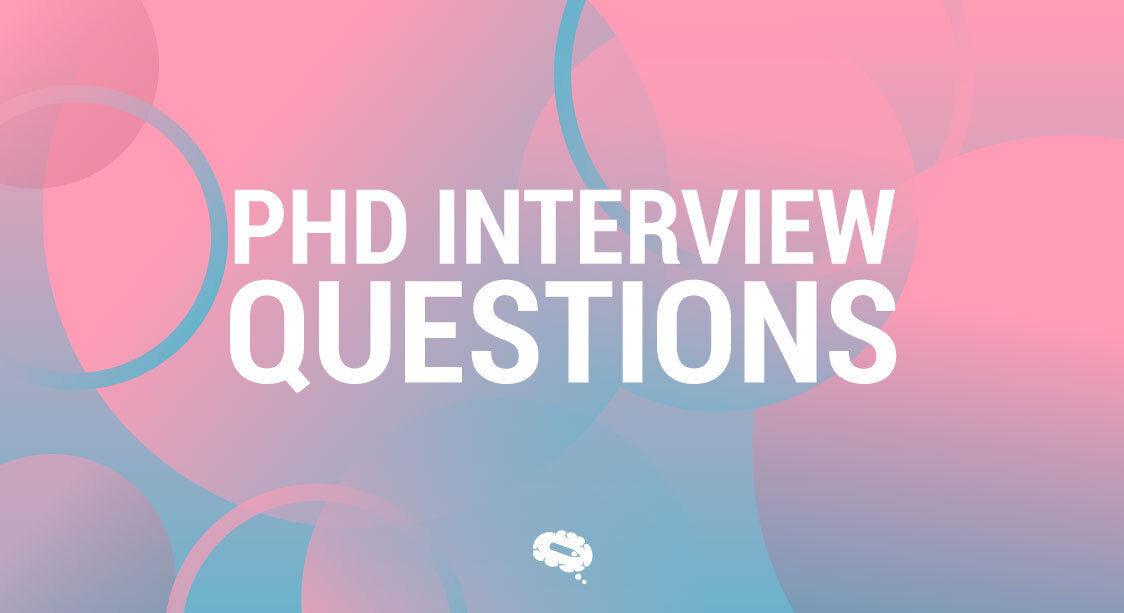Are you excited about pursuing your passion for research and diving deeper into your favorite subject? Are you ready to take your academic journey to the next level and make significant contributions to your field of study?
If so, brace yourself for the final challenge between you and your dream of obtaining a Ph.D. – the Ph.D. interview. Worry not! In this article, we will answer some of the sureshot Ph.D. interview questions and guide you through this critical milestone with ease.
Definition Of A Ph.D. Interview
A Ph.D. interview is an essential part of the application process for doctoral studies at universities and research institutions. It is a meeting between the prospective Ph.D. candidate and a panel of faculty members or admissions committee representatives.
The purpose of the interview is to assess the candidate’s suitability for the Ph.D. program, evaluate their academic and research potential, and determine if they are a good fit for the institution and its research environment.
Also read: Doctoral Degrees In The Digital Age: Can You Get A PhD Online?
The structure and format of Ph.D. interviews can vary depending on the institution and discipline, but some common elements include:
Purpose
The interview aims to go beyond the information presented in the application materials, such as transcripts, CVs, and recommendation letters. It allows the interviewers to gain insights into the candidate’s motivations, research interests, and potential contributions to the field.
Content
The interview typically covers a range of topics, including the candidate’s academic background, research experience (if any), proposed research topic, and future career goals. Interviewers may ask about specific academic achievements, relevant coursework, and any publications or conference presentations.
Research Proposal
In some cases, candidates may be required to present or discuss their research proposal during the interview. This is an opportunity for candidates to demonstrate their research ideas and how well they can articulate their research plan.
Interpersonal Skills
Apart from academic qualifications, interviewers may evaluate the candidate’s communication skills, critical thinking abilities, and capacity for independent research.
Questions From The Candidate
The interview often concludes with the candidate having the chance to ask questions about the program, the research facilities, potential supervisors, funding opportunities, or any other relevant aspects.
Related article: Master’s vs PhD: Which Degree Is The Right One for You?
Types Of Questions Asked During A Ph.D. Interview
Academic Background And Experience
- Tell us about your academic background and qualifications.
- What courses or subjects did you find most interesting during your previous studies?
- Have you been involved in any research projects or academic activities outside of your coursework?
Research Interests And Motivation
- What specific research topics or areas are you interested in pursuing for your Ph.D.?
- What motivated you to choose this particular field of research?
- How do you see your proposed research contributing to the existing knowledge in the field?
Research Proposal And Methodology (if applicable)
- Can you outline your research proposal or give us an overview of your research plan?
- What research methods or approaches do you plan to use in your study?
- Have you considered any potential challenges or limitations that might arise in your research?
Fit With The Program/Department
- How do you think your research interests align with the ongoing research in our department?
- Are there any specific faculty members you are interested in working with, and why?
- What do you know about our program/department, and why do you think it’s a good fit for you?
Academic Strengths And Weaknesses
- What are your greatest academic strengths, and how will they contribute to your Ph.D. studies?
- What are some areas in which you think you can improve academically?
Career Goals And Aspirations
- What are your long-term career goals after completing your Ph.D.?
- How do you envision your research contributing to your career objectives?
Problem-Solving and Critical Thinking
- How do you approach solving complex problems in your field of interest?
- Can you provide an example of a research challenge you faced and how you addressed it?
Time Management And Research Commitment
- How do you plan to manage your time effectively during your Ph.D. studies?
- How do you demonstrate your commitment to conducting independent research?
Collaboration And Communication Skills
- Describe your experience working in a team or collaborative environment.
- How do you communicate your research findings to different audiences?
Questions From The Candidate
- What resources and facilities are available to support Ph.D. research in the department?
- Are there any opportunities for conference attendance, publishing, or teaching assistantships?
Preparation For The Interview

Preparing for a Ph.D. interview is crucial as it significantly impacts your chances of being accepted into the program. Here are some essential steps to help you get ready for the interview:
Research The Program and Department
Thoroughly investigate the Ph.D. program and the department you are applying to. Understand their research focus, faculty members, ongoing projects, and overall research environment. Familiarize yourself with the specific areas of expertise of potential supervisors you may be interested in working with.
Know Your Research Interests
Be clear about your research interests and the specific topics you wish to explore during your Ph.D. Be able to articulate why you are passionate about these areas and how they align with the research conducted at the institution.
Understand Your Research Proposal (if applicable)
If you are required to present a research proposal during the interview, make sure you have a well-defined and feasible plan. Practice explaining your research objectives, methodology, and potential contributions.
Review Your Application Materials
Be prepared to discuss the information you provided in your application, including your academic background, research experience, and any other relevant accomplishments.
Stay Updated On Current Research
Read recent publications and articles in your field of interest to stay informed about the latest developments. This will demonstrate your enthusiasm and engagement with the subject.
Practice Your Communication Skills
Practice explaining complex concepts clearly and concisely. Work on your ability to discuss your research interests and goals confidently.
Prepare For Technical Questions
Be ready for questions related to your previous coursework and specific topics within your field. Review foundational knowledge to handle technical inquiries effectively.
Anticipate General Interview Questions
Be prepared for general questions about your strengths, weaknesses, academic achievements, career goals, and reasons for pursuing a Ph.D.
Prepare Questions For The Interviewers
Prepare thoughtful questions to ask the interviewers about the program, department culture, potential supervisors, and research resources.
Mock Interviews
If possible, practice mock interviews with friends, colleagues, or mentors. Ask for feedback on your responses and areas that need improvement.
Dress Professionally
Plan your outfit, ensuring it aligns with the expected dress code for the interview.
Punctuality And Logistics
Confirm the interview date, time, and any specific instructions. Aim to be punctual for the interview, whether it’s an in-person, phone, or video interview.
Positive Attitude
Approach the interview with a positive and enthusiastic attitude. Show genuine interest in the program and convey your eagerness to contribute to the academic community.
Be Yourself
Be authentic during the interview. Be honest about your experiences, interests, and aspirations.
Reflect On Potential Interview Questions
Review common Ph.D. interview questions and prepare thoughtful responses for each of them.
Related article: Conquer the PhD Struggles: A Practical Guide
Common Examples Of Ph.D. Interview Questions With Answers:
In this section, we compiled a list of sample interview questions that many Ph.D. scholars encountered during their interview process. We also gave a potential answer keeping you in mind which you can alter according to your needs. So, here are some common examples of Ph.D. interview questions.
Question 1: Can you tell us about your research interests and why you want to pursue a Ph.D. in this field?
Answer: My research interests revolve around [Your Research Area], specifically [Narrow Down the Topic]. I am deeply fascinated by this area because it addresses critical challenges in [Related Field] and has the potential to bring about positive impacts in [Specific Applications]. Pursuing a Ph.D. will allow me to delve deeper into these research questions, contribute to knowledge advancement, and make a meaningful difference in the field.
Question 2: How does your previous academic and research experience prepare you for this Ph.D. program?
Answer: During my academic journey, I have cultivated a strong foundation in [Your Field of Study] through relevant coursework and research projects. These experiences have honed my analytical skills, critical thinking, and research methodology expertise. Additionally, my involvement in [mention any relevant extracurricular activities or internships] has further enriched my understanding of the field and inspired me to pursue an advanced degree.
Question 3: What specific contributions do you envision making in your chosen research area?
Answer: Through my research, I hope to address [specific problems or gaps] in the field and propose innovative solutions. I aim to contribute novel insights that advance the current understanding of [Your Research Area]. Furthermore, I aspire to publish my findings in reputable academic journals and collaborate with experts in the field to foster meaningful research collaborations.
Question 4: How do you plan to approach your proposed research project?
Answer: My research approach will involve a combination of [research methods], such as [qualitative/quantitative techniques], [data collection], and [analysis]. I will also conduct a comprehensive literature review to build a strong theoretical framework for my study. Regular consultations with my advisor and peers will ensure that I maintain a rigorous research process and meet the objectives of the project.
Question 5: How do you handle challenges and setbacks in research?
Answer: Challenges and setbacks are integral to the research process. When faced with difficulties, I adopt a proactive approach. I seek advice from my mentor and other experts, review relevant literature, and explore alternative methodologies. I believe that perseverance and adaptability are key to overcoming obstacles and achieving meaningful research outcomes.
Please note that these are sample answers, and your responses should reflect your unique experiences, aspirations, and research interests. Tailor your answers to showcase your strengths, enthusiasm, and potential as a Ph.D. candidate. Practice answering these questions to build confidence for the interview.
Bottom Line
The Ph.D. interview is a pivotal moment in the journey of aspiring scholars toward their academic pursuits. This crucial interaction between candidates and academic institutions serves as a platform to assess not only their academic qualifications but also their research potential, interpersonal skills, and alignment with the program’s objectives.
Are You Looking For Figures And Illustrations To Communicate Science?
Are you looking for figures and illustrations to communicate science? Well, you are in the right place! Mind the Graph is an infographic tool that makes scientific illustrations and helps you enhance your research papers using the right visuals. Sign Up now to explore the library of infographics designed just for you.

Subscribe to our newsletter
Exclusive high quality content about effective visual
communication in science.






